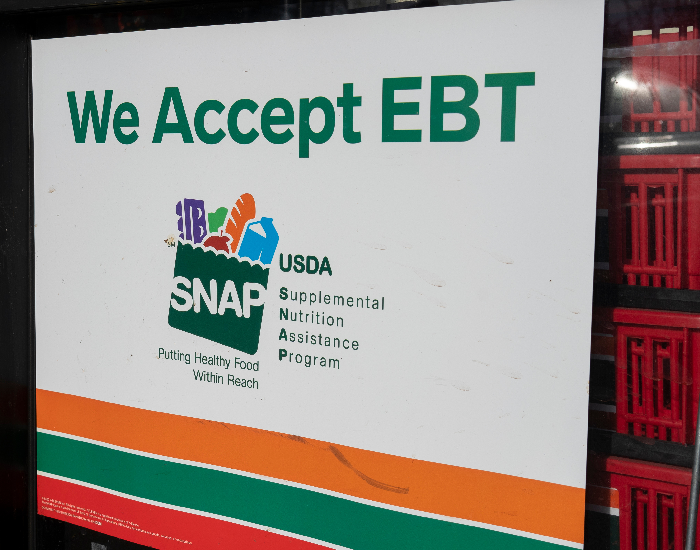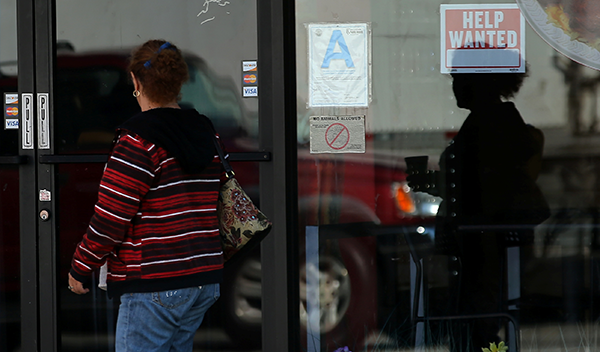Welcome to Our Research Archive
Search and filter by content type, issue area, author, and keyword
- ✕ Clear Filter
- Artificial Intelligence (1)
- Child Welfare (44)
- Child Welffare (1)
- Civil Society (34)
- Economic Opportunity (1)
- Economic Security (104)
- Economic Well-Being (1)
- Education (204)
- Family (113)
- Featured (4)
- Fmaily (1)
- Fraud (1)
- Housing (105)
- Housing Supply (1)
- Marriage (1)
- Safety Net (221)
- Social Capital (43)
- Social Captial (1)
- tax credit (1)
- Welfare (2)
- Workforce (113)
- Workforce Development (3)
- Workfrce (1)
- Workfroce (1)
- Workorce (1)
- ✕ Clear Filter
- Angela Rachidi (54)
- Beth Akers (1)
- Brent Orrell (4)
- Bruce D. Meyer (11)
- Howard Husock (5)
- James C. Capretta (1)
- James Pethokoukis (3)
- Kevin Corinth (47)
- Kyle Pomerleau (6)
- Leslie Ford (6)
- Matt Weidinger (74)
- Michael R. Strain (3)
- Nicholas Eberstadt (1)
- Paul Ryan (1)
- R. Glenn Hubbard (1)
- Richard Burkhauser (8)
- Richard V. Burkhauser (2)
- Robert Cherry (2)
- Robert Doar (8)
- Ryan Streeter (1)
- Scott Winship (25)
- Stan Veuger (3)
- Timothy P. Carney (2)
- W. Bradford Wilcox (3)
- Yuval Levin (3)

July 12, 2023
Employment in SNAP: Setting the Record Straight
Skeptics of work requirements in the Supplemental Nutrition Assistance Program (SNAP) often argue that most families receiving SNAP benefits are already working. A recent NBCNews article, for example, claimed that four out of five SNAP households have at least one working person in the household, and that 10 percent had three or more workers in 2021,…

July 10, 2023
Reforming the EITC to Reduce Single Parenthood and Ease Work-Family Balance
Sixty years ago, in 1963, 94% of American children were born to married mothers. Today, the figure is only 60 percent. This decline signals a fundamental disruption in the long-standing stability of the traditional family, the foremost institution shaping each generation of children. Using the Census Bureau’s American Community Survey, I find that in 2021, 40% of…

July 7, 2023
With Affirmative Action Gone, We Should Focus Admissions Policies on Poverty
If history is any guide, Supreme Court ruling in Students for Fair Admissions v. Harvard won’t mark the end of the struggle over the constitutionality of race-conscious policies. It won’t even mark the beginning of the end. Most likely, it will just be another in a long series of inflection points. To borrow from one of the…

June 30, 2023
Democrats Call Biden’s Economy “Savage” in Attempt to Revive Child Tax Credit
With unemployment near record lows and President Joe Biden running for reelection, some Democrats recently offered an unexpected take on the U.S. economy: It stinks, especially for low-income families. During a recent Senate Finance Committee hearing, Sen. Michael Bennet (D-CO) thundered that parents are currently “scraping by … in this savage economy,” burdened with “some of the lowest…

June 27, 2023
House Republican Plan Penalizes Marriage
If there was something liberals used to hate most about welfare reform, it was policies that promoted more work and smaller welfare caseloads. For example, during debate about 1996 reforms, Sen. Carol Moseley-Braun (D-IL) asked what would happen to families if they didn’t meet proposed work requirements: “Do we put them on trains and send them out West?” Sen. Ted Kennedy (D-MA) said those reforms “can only encourage a…

June 23, 2023
SNAP Can Improve Nutrition, Help Farmers, and Support the Environment
A headline in the Wall Street Journal earlier this year read, “America Is Binging on Snacks, and Food Companies Are Eating It Up.” The article explains how American diets that were already heavily reliant on snacks and packaged foods, have only gotten more so since the pandemic – to the tune of $181 billion in household snack purchases…

June 16, 2023
The Missing Context Behind “Cuts” in Fast-Growing Welfare Programs
Official Washington just completed a heated debate on the debt limit, punctuated by intense partisan differences over strengthening work requirements for key welfare programs. On one side stood House Republicans, who on April 26 approved legislation that would have strengthened work requirements for able-bodied adults without dependents (dubbed “ABAWDs”) collecting major welfare benefits like food stamps and…

June 15, 2023
The Conservative Case for SNAP Restrictions
Conservatives believe in individual freedom, free enterprise, and limited government. This is why conservatives often bridle against the government restricting individual choice—even when it comes to the use of public benefits. After all, being free to make decisions for yourself and your family is fundamental to conservative thought. So, why should policymakers consider placing restrictions on what…

June 15, 2023
Testimony on Anti-Poverty and Family Support Provisions in the Tax Code
Introduction Chairman Wyden, Ranking Member Crapo, and distinguished members of Committee, thank you for the opportunity to testify. My name is Bruce D. Meyer, and I am the McCormick Foundation Professor of Public Policy at the University of Chicago Harris School of Public Policy. I have spent forty years researching the effects of government programs…

June 14, 2023
Why Behavioral Requirements Are Vital to Welfare Programs
Just as the welfare-to-work policies of the Clinton administration jump-started a remarkable improvement in the lives of black women, work requirements, such as those included in the recent debt ceiling bill , have proven successful in other programs. Improving behaviors is crucial if we want more struggling families to distance themselves from poverty. Unfortunately, many liberals have labeled these efforts racist,…